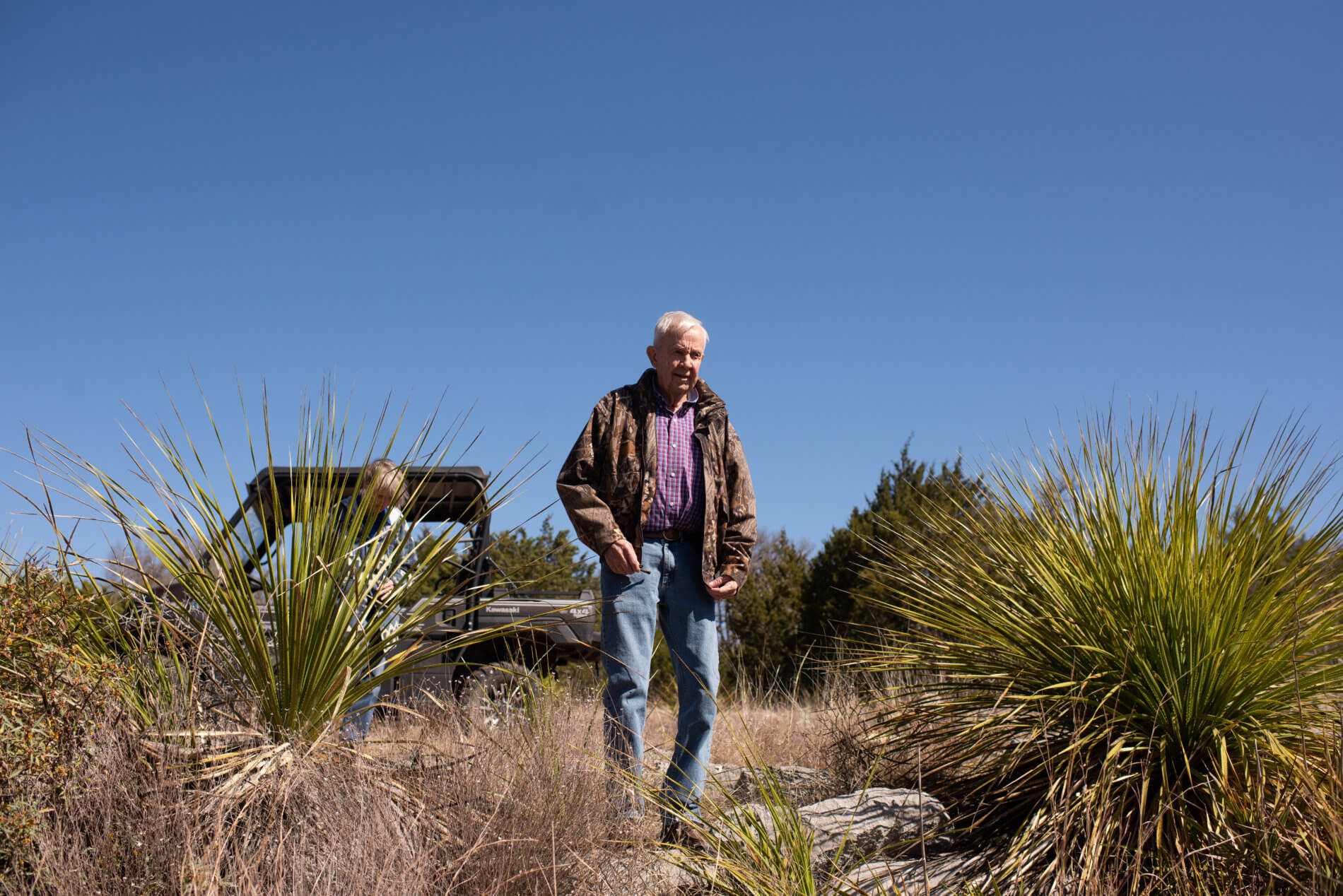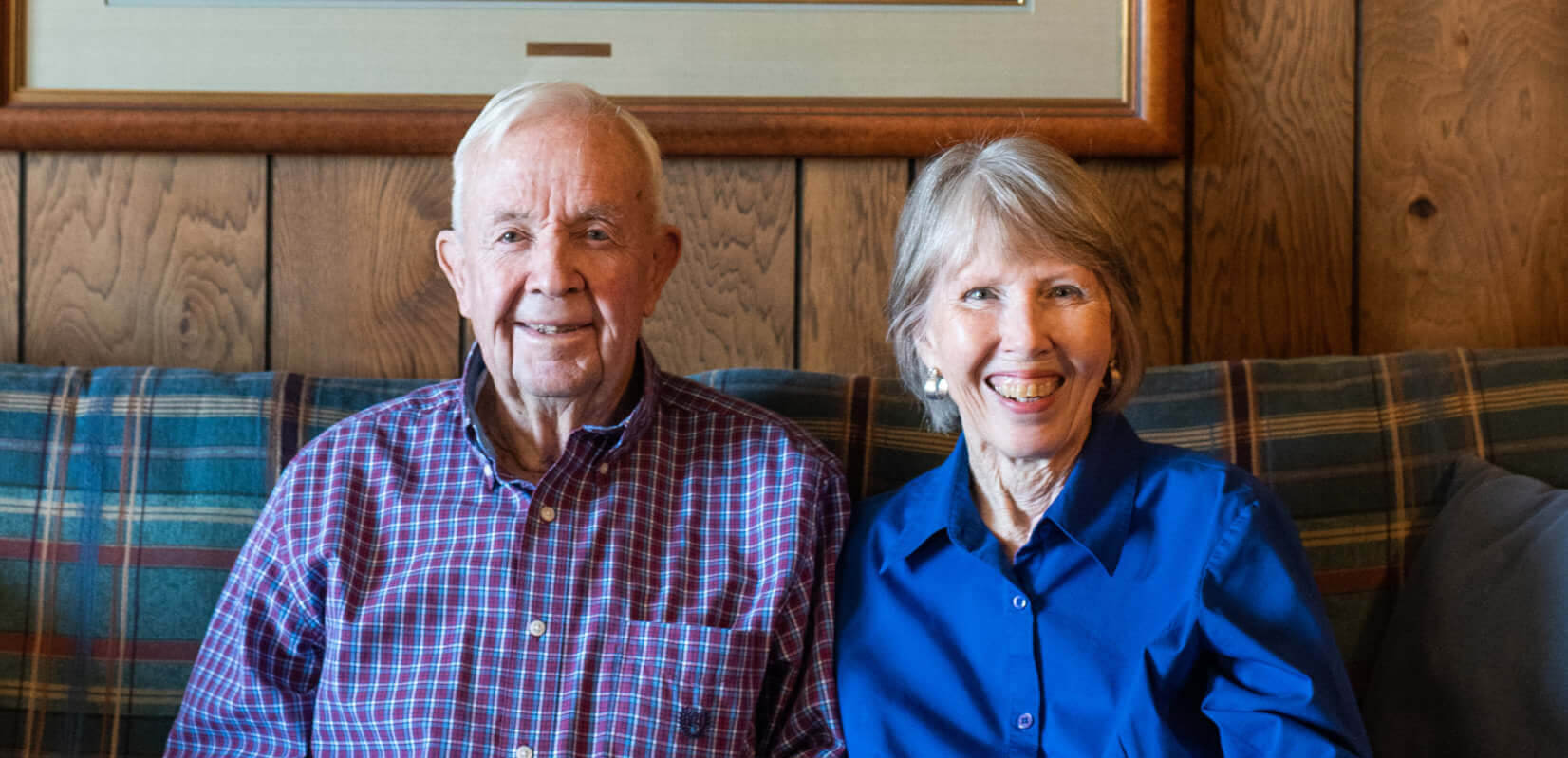
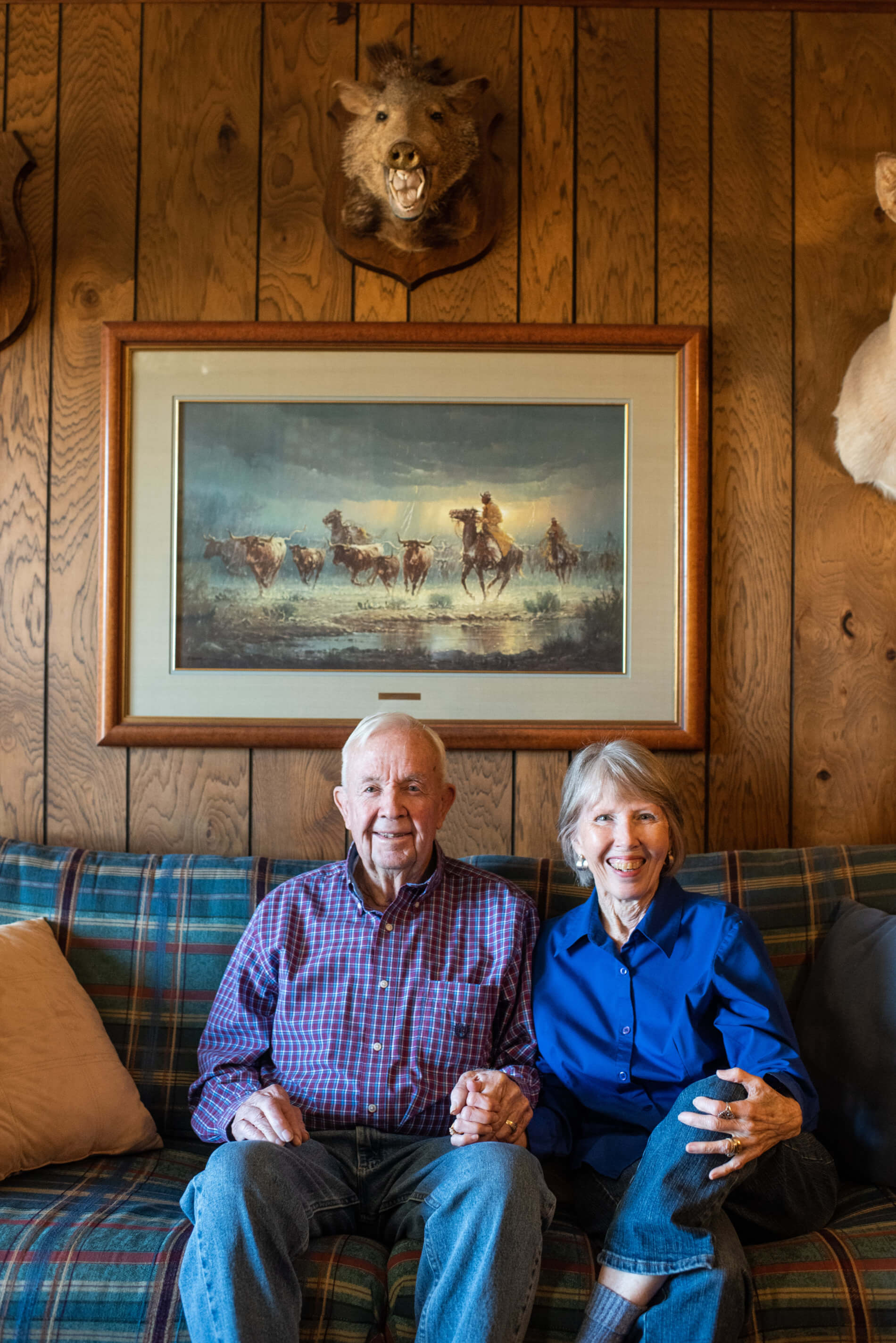
“I could tell they had been out for a long time,” he said. The campers were flushed and had a look of desperation as they walked down Haby Ranch Road on the backside of the H. E. Butt Foundation Camp. “There was an adult with them. He said they were lost, and he was right.” The group didn’t have enough water, and they were lucky George drove by.
George and Brenda Haby are one of our Hill Country neighbors. We also share a fence line with the Auld Ranch along Haby Ranch Road and with Big Springs Ranch downstream from Echo Valley.
The Haby Ranch sits just upstream from Headwaters and Laity Lodge Family Camp. In truth, the actual headwaters of the Frio River is on the Haby’s property about 300 yards upstream from our property line.
“There’s a crack that stretches across the riverbed,” George explained. “That’s the spring.” On a calm day, we would have been able to see the water seeping up through the crack, but it was too windy during our recent visit with the Habys.
His wife, Brenda, tells us about the time just a few years ago when George was walking the fence line with his dog. The dog chased up a wild pig, and George killed it with his pocket knife. Encouraged by this, the dog ran into some bushes and came back out with a much larger wild pig at her heels. This time, George climbed a fence until the pig wandered off.
“That second one was too big for my pocket knife,” George said.
“You are too old to be killing any pig with a pocket knife,” Brenda told him.
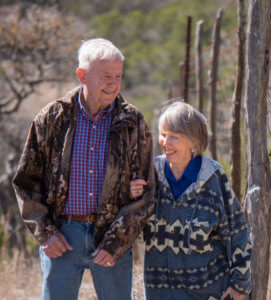
For several years, the Foundation has been inviting people to ask, “Who is our neighbor?” This question takes us to San Antonio where our narrative change project is examining the way different neighborhoods have been supported or not. Those efforts lean into the broadest definition of neighboring as we understand it from the story of the good Samaritan.
But none of that lets us individually or institutionally off the hook from being good to neighbors to people who share an apartment wall, a street, or a backyard fence.
“One of my favorite stories,” said Foundation President David Rogers, “is how Mr. Haby let our operations staff know any time aflood was coming our way. Legend has it that he could tell us whether it was going to be a two-foot flood or a 20-foot flood.” Before our current high tech flood warning system, the Habys themselves were the system. Even today they are an important partner in helping us watch the weather.
“I don’t know how many canoes, kayaks, and docks they helped us save over the years, but it has been significant,” Rogers said.
The H. E. Butt Foundation may interact with our literal next-door neighbors upstream—the Habys—very little, but each interaction is meaningful precisely because it is uncommon. We are intentionally learning how to be a good neighbor in Real County. We even opened the Real County Community Initiative office in Leakey to focus this work.
On our visit to the Haby Ranch, George and Brenda drove us on their mule from the farmhouse to the headwaters. Their dog Zoey ran in front of the vehicle half the time.
(As a side note, the breed was developed by the forebears of our own Dwight Lacy who served as CFO and a member of the Foundation Board for three decades.)
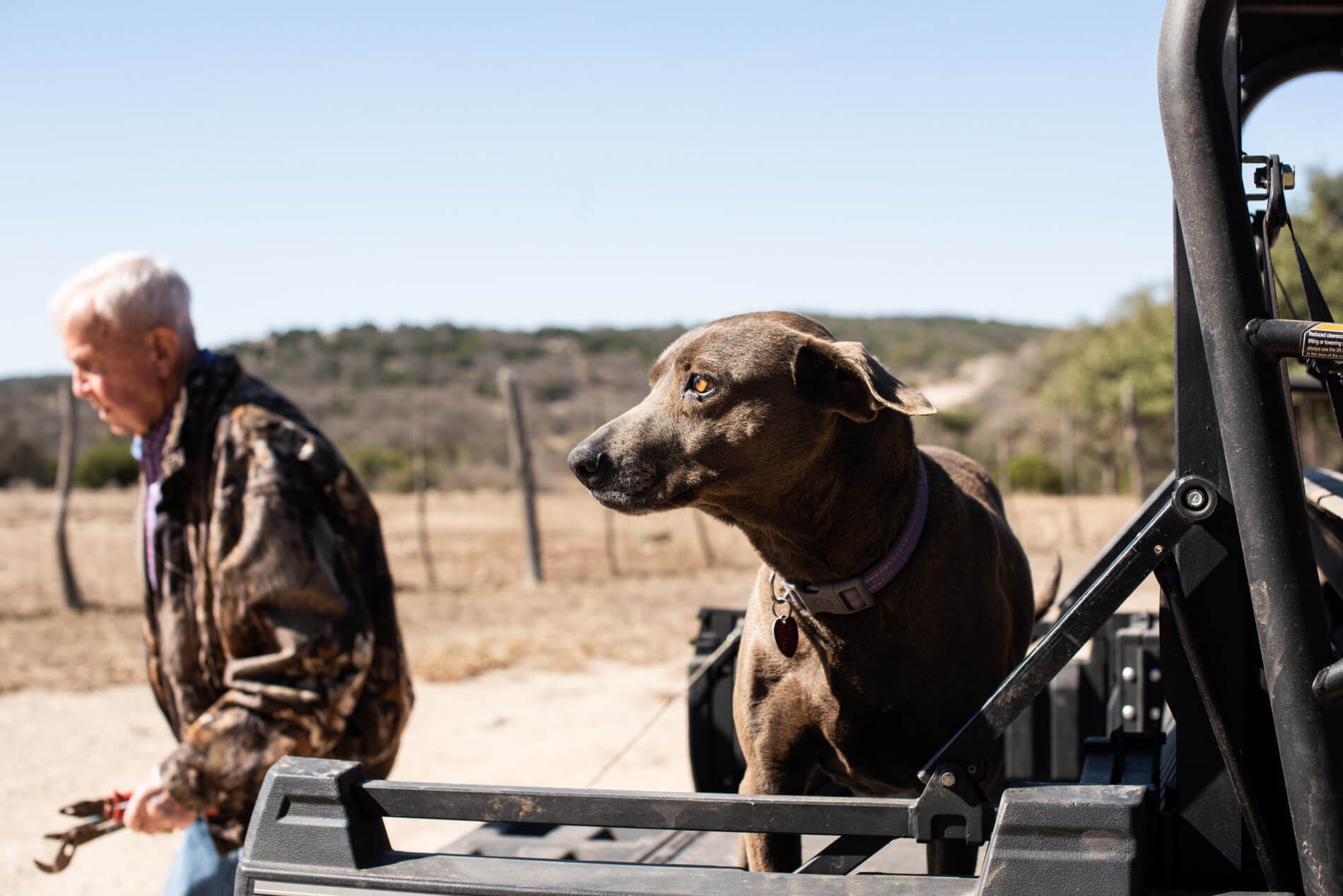
At that time, local tribes were still migrating north to south through their tribal lands, often negotiating space with white settlers.
“When my grandfather moved out here, [the Apache] were still active,” George told us. That same year, a small group of Lipan Apache raided the McLaurin family on the west fork of the Frio just a few miles away from the Habys.
Today the Lipan no longer migrate north to south. They settled in McAllen and San Antonio. The Habys stayed on the Frio.
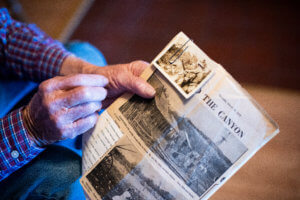
To George, now 83, the ranch is the only home he’s ever known. “I enjoy the wildlife,” he said. “It’s quiet; you don’t have to worry about other people.” He still manages cattle, about forty head.
After the Foundation acquired the land next to the Haby property in 1954, George worked alongside the Butts through the camps’ infancy and growth. His daughters, Carrie and Crystal, worked at the camps for a couple of summers when they were young. They were part of housekeeping at Laity Lodge as well.
“They do a lot of good; people really enjoy it,” Haby said of the Foundation’s camping and retreat programs.
Haby himself helped build the original cabins at Windsong as well as the caretaker house where Glen Echols lived for many years. Until the pandemic started, he also chopped, split, and loaded all of the firewood for all of the camps.
“He’s tough,” said Carlos Navarro, Senior Director of Camp Operations. “He was unloading all this wood from his truck, and he was over 80. I always offered to help, but he liked doing it himself. ‘Gotta stay active,’ he’d say.”
Using firewood from nearby trees prevented the spread of diseases like oak wilt, while still allowing campers to enjoy memorable campfires.
“I never knew who I was helping,” Haby said. “I’d get it down to them as soon as I could.”
The Habys also helped plant Mrs. Butt’s cypress trees.
And whenever he found lost campers, he’d steer them straight or drive them back. That group he found wandering back side on Haby Ranch Road without water? He invited them to hop into the bed of his truck then drove them all back to their campsite.
Lost campers are less common these days. “They’ve got cell phones now that tell them where they’re at,” Brenda said.
When conflicts inevitably arise, good neighbors settle on a solution. To prevent campers from wandering upstream, the Foundation has improved its trail signs and trail maps. They also placed clear signage along the property line. All of this is what neighbors should do for each other, Haby said.
In many ways, the H. E. Butt Foundation is still the new kid in town. Afterall, the Haby family has lived here more than twice as long as campers have been visiting.
